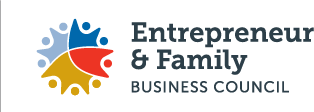With so many platforms and technologies available at our fingertips, there is a whole world out there full of resources and places to get smarter. With so little time in the day, it’s easy to feel overwhelmed in your search for the best places to find insights and information on the challenges you face in your business. That’s where the EFBC community comes in! Our organization is full of family business owners and entrepreneurs who share challenges similar to your own. What better way to find the best resources to find insights than tapping into the knowledge of other members?
This month, we asked members of EFBC to share their favorite places to get smarter. Here’s what our members said:
“EFBC is my most significant resource. My forum and non-forum friends often recommend books from which I find valuable insight. For example, Kevin Walter recently recommended “No Man’s Land” to me, which was life-affirming in many ways.”
-Dave Westerman, President at Carbit Paint Co.
“I listen to people.
I am surrounded by all types of people in my life. I work directly with our operators who do the manufacturing. I work directly with our management staff, who help control day-to-day activities. I listen to them all. They all have bits of information I use to understand all aspects of my company better.
Listening to others and using their information has been a great way to allow for easy change. It shows that everyone has a voice and they have a better chance of speaking up when an idea comes around. It also allows me to use their ideas and build on them. For example, if someone gives a bit of information and it isn’t 100% complete, we can adapt their suggestion in a way that would work for our company. The team also has a better chance of speaking up when there is a breakdown and change needs to happen.
I also use my everyday life to make changes and suggestions. Talking to friends and family that have their way of doing things allows me to have a conversation to see if it is something that we can incorporate into my business. Books, videos and podcasts are great, and they have helpful tools. I use everyday life and the people surrounding me to help make me smarter.
I love the saying, “I know what I know and don’t know what I don’t know.” Being open to people and their ideas allows me to grow as a business and person.”
-Scott Lichtenstein – President at Richardson Seating Corp.
“I generally keep track of WSJ, Fast Company, Inc Magazine, and Shopifreaks.com. Shopifreaks brings you e-commerce industry news in a short weekly email that is interesting for my business. Occasionally, I’ll try out a podcast, but I always appreciate suggestions from others!”
-James McHenry, Director, Sales at WIDGETEER
“I definitely tune into some podcasts, but they are more to keep me up to date with current events. I’ve found I learn the most when I’m interacting with others which why is I value organizations like the EFBC so much. Podcast and books are great resources but when you’re spinning your wheels and have others around you that can share and ask questions, I’ve found those conversations much more fruitful.”
-Ryan Huette, Vice President, Sales at Nu-Way
“Most of my strict business information comes from business books recommended by colleagues, investment advisors and even EFBC’s book club! I also subscribe to Yahoo Finance to help me keep a pulse of the macroeconomy and Axios Chicago for local insights.
However, the most influential source of reading I do comes from Quilette. Quilette is an Australian-based online magazine focusing on long-form analysis and cultural commentary. They are politically non-partisan but rely on reason, science, and humanism as guiding values. It is intentional that this is not a business-focused source because reading more about cultural commentary helps make me a more global thinker, which in turn helps my creativity to solve problems and ultimately be a better leader.”
-Jon Kabance, President at BIOKINETIX

